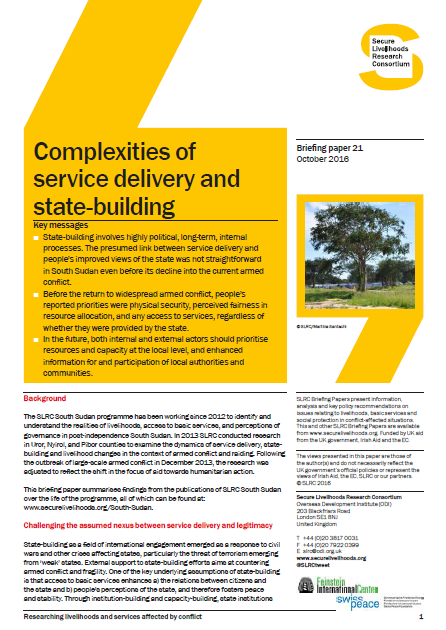Approximately 4.75 billion USD of international aid money was spent in South Sudan between 2012 and 2014 alone. Yet despite the intense international engagement in institution-building, supposedly to help improve people’s perceptions of governance, South Sudan descended into armed conflict in 2013. The Secure Livelihoods Research Consortium (SLRC) South Sudan program has been working since 2012 to identify and understand the realities of service delivery, access to basic services, and perceptions of governance in post-independence South Sudan.
This paper describes the findings from research carried out in several areas of South Sudan in the context of armed conflict and raiding. The findings show that despite state-building efforts, service delivery remained inadequate in remote areas and that the interface between service delivery and people’s perceptions of the state is complex. The authors recommend that the highly political nature of state-building and post-conflict transformation processes should be more systematically taken into account by external actors involved in South Sudan.
The Secure Livelihoods Research Consortium (SLRC) is a six-year, eight-country research study, led by the Overseas Development Institute (ODI) in London. SLRC investigates livelihoods, access to basic services, and social protection in fragile and conflict-affected situations. The research is funded by the UK Department for International Development (DfID), Irish Aid, and the European Community (EC). The Feinstein International Center leads SLRC research in South Sudan and Uganda in addition to its participation in the Sierra Leone research.







